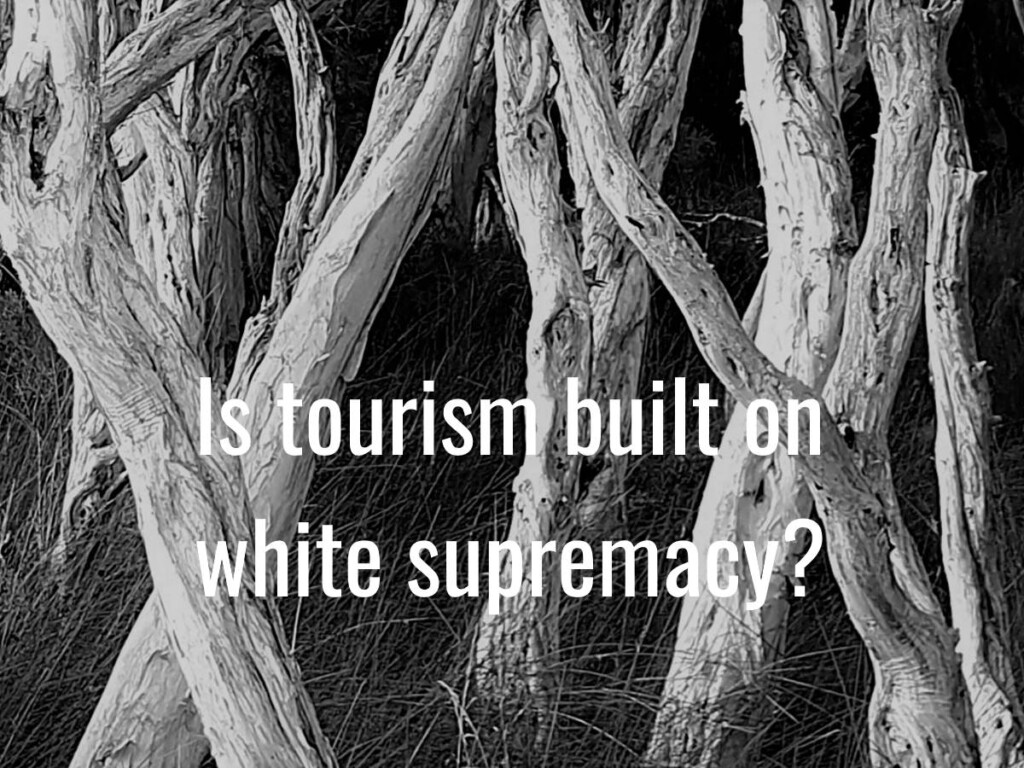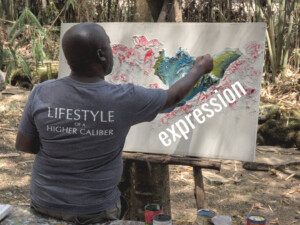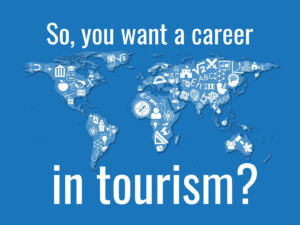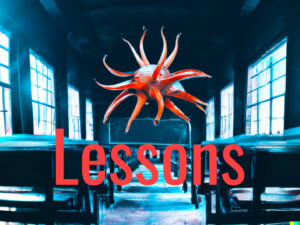‘Tourism is built on the backbone of white supremacy’. What do you think?

Without offering any destination- or market-specific context, one commentator recently asserted that tourism is “built on the backbone of white supremacy”.
What do you think?
It’s a “Good Tourism” Insight Bites question.
Your correspondent put the question to a range of travel & tourism stakeholders — “GT” Insight authors, “GT” Partners, and their invitees — and invited emailed written responses of no more than 300 words.
- Greg Bakunzi — ‘Tourism brings people together’
- Saverio Francesco Bertolucci — ‘Travelling is part of humankind’
- Rieki Crins — Yes, but no longer valid
- Steve Noakes — ‘… in the context of the Doctrine of Discovery’
- Susan Eardly — Green will reign supreme
- K Michael Haywood — The Caribbean context
- Jim Butcher — ‘A recipe for guilt and the re-racialisation of culture’
- Richard A Shepard — ‘A less-than-useless observation’
- What do you think?
Previous “GT” Insight Bites:
- Really, what’s the difference? ‘Sustainable tourism’ vs ‘regenerative tourism’
- Want a career in tourism? Important things you should know
- Diverse perspectives on travel & tourism and a fairer world
- Diverse perspectives on economic degrowth and tourism
- Diverse perspectives on visitor dispersion
‘Tourism brings people together’
Greg Bakunzi, Founder, Red Rocks Initiative for Sustainable Development & Red Rocks Rwanda
We do not believe that tourism is “built on the backbone of white supremacy”.
This is because tourism entails the movement of people to countries or places outside their usual environment for personal or business/professional purposes, thus meeting new people and learning more about the host community.
It does not necessitate that only white people enjoy tourism activities. All humans can move from one place to another to experience and learn more from host partners.
Tourism brings people together.
In our country, Rwanda, tourism constitutes an important industry today. It has opened up new prospects for economic emancipation and makes a very potent contribution to this end by strengthening and developing the financial resources of our country.
Tourism fetches foreign exchange in the form of invisible exports, generates jobs and employment (even if often seasonal), and is a major contributor to national income.
Tourism leads to the commercialisation of art forms, especially handicrafts and items with cultural meaning, which are sought by tourists as souvenirs. This helps Rwanda develop its arts, cultural, and even manufacturing industries.
Tourism also helps us conserve Rwanda’s natural environment and wildlife, which would otherwise be under greater threat.
So, no, tourism is not about “white supremacy”.
‘Travelling is part of humankind’
Saverio Francesco Bertolucci, Administrative Assistant, Alcambarcelona, Spain
‘Presentism’ judges the actions of individuals in the past as if they lived in today’s Western society.
The assertion that tourism is built on white supremacy is promulgated by exponents of the extreme left and it has a very dangerous and discriminatory root.
Travelling is part of humankind.
Tourism was clearly not invented by the Renaissance or Illuminism of well-off Europeans who had the money to travel across countries and continents to extend their knowledge.
Discovering and exploring new territories and new populations was a common strategy of ancient societies all over the world, as described in their literature and legends.
It is also important to recognise that tourism always changes.
It is becoming increasingly accessible to everyone. Indeed, white-skin tourists are now just a small fraction of the total who travel every year.
If tourism were built on the backbone of white supremacism, then why is it so popular and increasingly accessible to everyone?
As a managerial employee in the hospitality and travel industry, I feel it is utterly disgusting to divide people based on the colour of their skin, or to judge with a racist attitude the tourism of past centuries.
Everyone is treated equally and is more than welcome in our apartments in Barcelona, Madrid, and Valencia.
Yes, but no longer valid
Rieki Crins, Founder of the Learning Exchange Foundation, Netherlands & Founder, the Bongde Institute of Hospitality and Tourism, Bhutan
This is a very intriguing statement.
If we make a question out of it, it will be easier to debate.
Tourism as we know it today (visiting places for a few weeks, visiting other cultures) started with the industrial revolution.
Trains and boats were widely available and the Suez channel was open. Spain, Italy, North Africa, Egypt became places that were very fashionable to visit by the rich and famous.
Later, in the 1960s, with the increase of wealth and the emergence of a middle class, more and more people could travel to other countries to spend several weeks there.
By the 1980s, far-flung places became more and more en vogue for Western tourists. The ‘Far East’, Africa, and South America became very popular.
But it was a one way street.
It was the rich people in the West who could afford to go to exotic places.
It was ‘hip’ to go to places no-one else had been before. But those who followed demanded Western-style hotels, Western food, and comfortable roads.
Getting to know the “other” had to be carefully managed. Getting to know too much of the “other” was scary and uncomfortable. The “other” should not come too near.
In this regard, tourism was indeed a new form of white/rich supremacy; based on inequality and abuse.
Local people were often forbidden to enter hotels where Western tourists stayed. And those who worked in hotels were often underpaid, so that the trip could be sold for a cheaper price.
In this context, the statement above is right.
But changes are happening.
Well-to-do Africans, Asians, and South Americans, for example, are now also able to travel to Western countries.
In this regard, the statement above is not valid anymore.
‘… in the context of the Doctrine of Discovery’
Steve Noakes, Chair, Binna Burra Lodge, Australia; & Founder, Pacific Asia Tourism; & Director, Ecolodges Indonesia
Tourism happens between and within all regions, cultures, and religions of the world.
Examples:
- Tourism in China is built on the backbone of the massive Chinese domestic market.
- The backbone of tourism in Indonesia are the Indonesians (especially since the COVID pandemic).
Now, if the comment refers to the early years of the ‘modern era of tourism’, when the wealthy colonial masters of Europe ventured into their conquered territories for a warm spell, I can sympathise with it in the context of the Doctrine of Discovery.
Green will reign supreme
Susan Eardly, Founder, Serene Vacations, Sri Lanka
Travel & tourism is more about people’s interests and creativity, and interactions between different cultures.
It is no longer built on white supremacy.
The modern global society, and the ever-changing generations, are more concerned about environmental changes and responsible travel.
It’s important to educate ourselves, rethink tourism, and create strategies to achieve sustainable development goals.
People should understand that we are children of one universe.
Travellers now are looking at green tourism activities to support health and wellbeing.
Companies should commit to responsible and sustainable travel and respect the destinations that they promote.
Global travel is still to recover fully, but green travel is definitely becoming a popular choice among travellers.
Respect for nature and different cultures should be travellers’ goals, while exploring their different destinations.
The Caribbean context
K Michael Haywood, Professor Emeritus, University of Guelph, Canada
The cringe-worthy comment that tourism was “built on the backbone of white supremacy” caused pause, then brooding.
As a youngster living in the Bahamas during the 1950s, I was aware that tourism, in its infancy, was for the privileged and wealthy few, all whites.
The local black populace was kept at bay; denied access to resort hotels, most restaurants, and some attractions.
While locals supplied the labour, often subservient, it was white Bahamians and expats who maintained control; occupying senior policy and management positions.
Throughout the Caribbean, tourism wasn’t necessarily developed by the colonisers — Brits, French, and Spaniards — but by their compatriotic, foreign, white-owned enterprises. It was they who demonstrated their arrogance, superiority, and marginalisation of others.
While deserving credit for building tourism’s foundational elements that have generated economic wealth, it was their portrayal of the islands as “paradise” that grated. As the former Premier of St. Vincent once quipped: “To Hell with Paradise”.
Equating the former colonists with today’s notion of white supremacy, however, may be ill-advised.
After all, and to their credit, it’s notable how the colonisers provided education and promoted democratic principles. This allowed Caribbean nations to throw off the yoke of subjugation, not only of their people, but also their natural and cultural assets.
But, as the renowned author Jamaica Kincaid explains in her book, A Small Place, about Antigua, the subjugated often glean the best and worst from their antagonists.
Although tourism is now being developed on their own terms, aspects of arrogance, racism, and sexism still exist. Diversity and equity remain problematic. Even tourism’s infrastructure and architecture aren’t immune.
It’s ironic; while differentiation among destinations is a requisite for success, differences among peoples, cultures, and religions continue to breed intolerance.
Supremacism may be banal, but its ideology seems entrenched.
If only it weren’t so.
‘A recipe for guilt and the re-racialisation of culture’
Jim Butcher, Reader, Canterbury Christ Church University, UK
Slavery was integral to the development of modern western societies, and racial thinking justified brutal colonialism.
In that respect tourism, like everything else, is shaped by a history featuring brutality and discrimination based on a belief in racial superiority. It is a history we should know and reflect upon.
But the invocation of ‘white supremacy’ today often means something beyond that. Along with ‘white privilege’, ‘white supremacy’ is often used to suggest that western societies and their white inhabitants are characterised by ‘whiteness’.
This narrative reads race into all aspects of politics and culture. Unsurprisingly, tourism, involving intercultural encounters, is in the frame.
However, this neglects that the anti-colonial struggles, and those of black Americans and others suffering discrimination, substantially defeated ‘white supremacy’.
Today the large majority subscribe to Martin Luther King’s vision of a world in which it is the content of one’s character, not the colour of skin, that matters.
In the UK, only 7% think that “to be truly British you have to be White”. This is why increasing numbers of white and black people mix, marry, and holiday together.
My own local beach at Margate is annually and joyously filled with people of all colours, creeds, and classes. It brings to mind the saying attributed to idealistic French tourists in the 1950s, which translates as ‘There are no social differences when everyone is in a swimming costume’.
We don’t live in a post-racial world. Neither do we live in one characterised by ‘white supremacy’. Society’s development has involved great injustice and brutality, but also great progress towards equality, democracy, and freedom from want.
We have a way to go.
Politicising holidays by associating today’s tourism, and tourists, with ‘white supremacy’, is a recipe for guilt and the re-racialisation of culture, but not greater equality.
‘A less-than-useless observation’
Richard A Shepard, Trustee & CEO, Sustainable Rural Development International, UK
My immediate reaction to this sort of assertion is complete disdain.
It is an example of an assertion seeking a reason to exist. It represents someone who is obsessed, probably, with constantly patrolling the borders of their damaged self-esteem.
If there is no evidence presented, then it is a less-than-useless observation. I doubt very much that tourism to Scandinavia is built on white supremacy, or tourism to Thailand, or anywhere else for that matter.
But what has been written about and discussed is racism aimed at the traveller; difficulties faced by people of colour when travelling. That is a completely different and very real issue.
However, an assertion of the sort made, without facts and examples, is not worthy of a six-year-old. The writer needs to get a day job.
What do you think?
What do you think? Share your own thoughts in a comment below. Or write a deeper “GT” Insight. The “Good Tourism” Blog welcomes diversity of opinion and perspective about travel & tourism, because travel & tourism is everyone’s business.
Featured image (top of post): Paperbarks, Walpole, Western Australia. Image snapped, heavily cropped, desaturated, and filtered by your correspondent.














